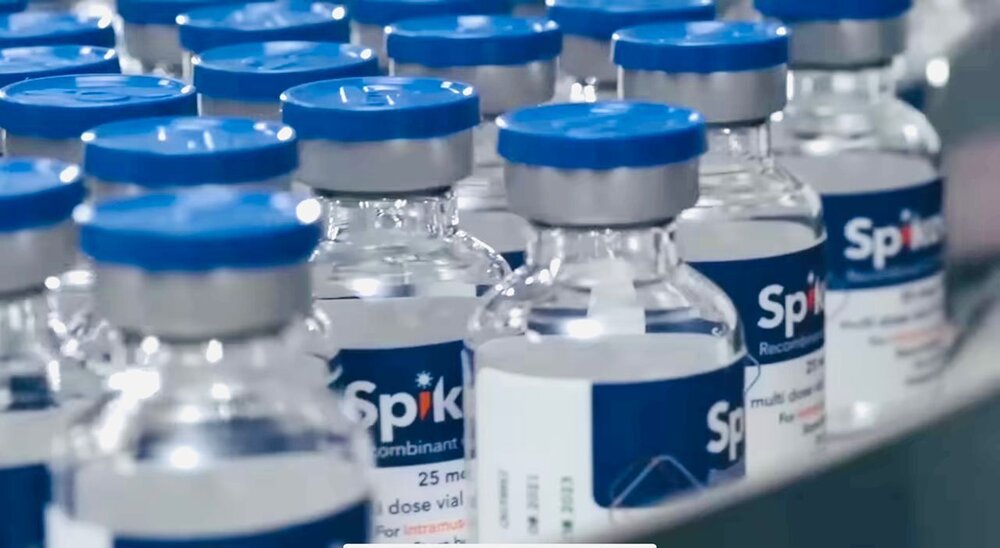Spikogen joins national vaccination process

TEHRAN – The Iranian-Australian Spikogen vaccine, which has recently received an emergency use license, will be available to people nationwide.
The manufacturing company has delivered 6 million doses of Spikogen vaccine to the Ministry of Health, Payam Tabarsi, a researcher of the project, announced.
The monthly production capacity was three million doses, which increased by one million so that it is producing four million doses a month, he stated.
The monthly production capacity of Spikogen was three million doses, which increased by one million. The results of the human test showed that the vaccine provides more than 87 percent immunity, while it will be more precise after more research, he highlighted.
The third phase of the clinical trial of Spikogen has been completed and we are now summarizing the latest information on this vaccine, which is expected to be completed by the end of November, he explained.
Tabarsi went on to say that this vaccine did not show any serious or specific side effects in the second and third stages of a clinical trial, and can be used as a booster dose.
The first phase of the study was performed on volunteer Australians and received the necessary approval, the second phase was administrated to 400 Iranians, which has had no serious side effects, Tabarsi said.
Vaccines against viruses can be divided into three main categories: live attenuated, inactivated/killed, and subunit vaccines. Recombinant protein subunit vaccines are composed of at least 1 type of viral antigen. These vaccines are significantly more secure than live attenuated and inactivated vaccines.
Mass vaccination against COVID-19 started on Iranian citizens with the Russian-made Sputnik V vaccine on February 9.
Iran is also producing vaccines jointly with two countries of Cuba and Russia.
Homegrown vaccines
Made by researchers at the Headquarters for Executing the Order of the Imam, COVIRAN BAREKAT was unveiled on December 29, 2020, and received the license for public use on June 14.
Eleven countries from Asia and South America, and a European country have asked for importing COVIRAN vaccine, Hassan Jalili, the vaccine’s production manager, said in June.
According to the Food and Drug Administration, 14 vaccines are being domestically developed in the country which are in different study phases.
Pastu Covac, developed jointly by the Pasteur Institute of Iran and Cuba's Finlay Vaccine Institute, is another homegrown vaccine, which has received the emergency use license, after COVIRAN.
FB/MG
